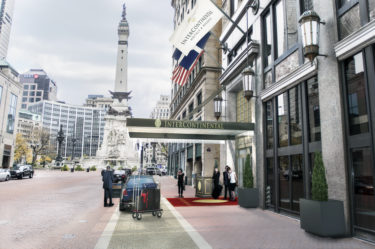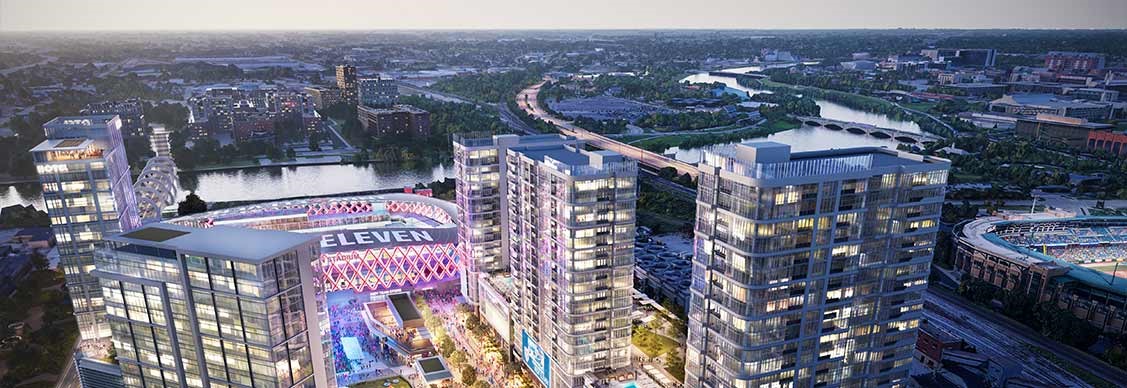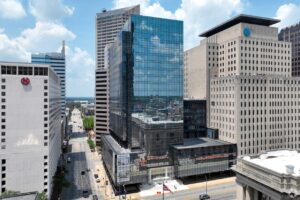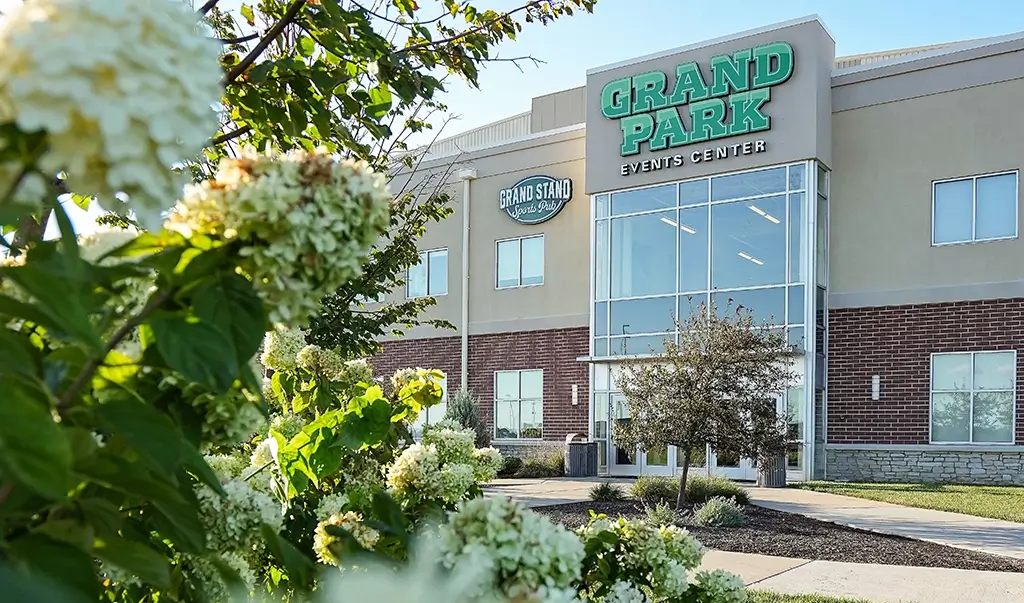
City-County Council approves downtown sports taxing district, purchase of Broad Ripple Family Center
The Indianapolis City-County Council on Monday gave the green light to the city’s plan to create a new taxing district for the Eleven Park development downtown along the White River.
The 23-1 vote allows for the city to proceed with establishing a professional sports development area, or PSDA, to partially pay for a 20,000-seat soccer stadium for Indy Eleven. Independent councilor Ethan Evans voted against the measure.
The council also voted to authorize up to $26 million in principal bonds to acquire the new Broad Ripple Park Family Center over the protests of several neighborhood groups. It also approved tens of millions of dollars in bonds to support the redevelopment of Old City Hall, a demolition of the former Jail I building and renovation of portions of the City-County Building.
Also approved Monday was a plan to create a study commission on the legislative body’s use of artificial intelligence.
Professional sports development area
The soccer stadium is a key component of Keystone Group owner Ersal Ozdemir’s planned $1.5 billion mixed-use development on the former Diamond Chain Manufacturing Co. site southwest of the Mile Square. The City-County Council’s Metropolitan and Economic Development Committee unanimously recommended approval for the measure on Nov. 21.
The Indiana General Assembly passed legislation for the PSDA in 2019, permitting state tax contributions of up to $9.5 million per year toward debt service on the soccer stadium, as long as Ozdemir, who owns Indy Eleven, contributes at least 20% of the venue’s overall cost.
The district would collect various taxes to cover a portion of the cost for the stadium at the proposed Eleven Park development, slated to occupy the former Diamond Chain Manufacturing Co. site southwest of the Mile Square along the White River. The first phase of the project is under construction.
The $1.5 billion project as proposed includes the stadium, 600 apartments, 205,000 square feet of office space, 197,000 square feet of retail and restaurant space, and a 4,000-seat indoor music venue. It also would include extensive green space and an amphitheater. The stadium is is expected to cost anywhere from $200 million to $250 million.
The PSDA would generally rely on state retail taxes, local and state income taxes, and food and beverage taxes collected in the district, but the resolution for the district also allows innkeepers taxes and admission taxes to be used.
The proposed boundaries for the PSDA include the entire 20-acre site, but go beyond the property to form a piecemeal, non-contiguous district made up of properties throughout downtown—but all within a one-mile radius of the Eleven Park site, as required by law.
Both the taxing district and the Eleven Park project must still clear additional hurdles in coming months to come to fruition.
The city and the Capital Improvement Board plan to complete a feasibility study in the coming months, in partnership with Chicago-based firm Hunden Partners, which will determine how much revenue might be generated by both the stadium itself and the Eleven Park project.
Those findings must be provided to the state budget committee by July 1, 2024, which has final say over creation of the PSDA. Once that is done, debt tied to the district can be issued for the project.
The city also continues to work with Keystone Group to establish additional incentives for the Eleven Park development. Keystone must sign a deal with the CIB (which also operates the Indiana Convention Center and Lucas Oil Stadium), designating the board as the stadium’s owner.
Council OKs bonds for Broad Ripple Park family center acquisition
The city can move forward its plan to acquire the new Broad Ripple Park Family Center, after the council voted Monday to authorize up to $26 million in principal bonds.
The unanimous vote follows weeks of pushback by neighborhood leaders and residents in Midtown neighborhoods who have expressed concern about how debt for the project might be serviced on a long-term basis. Councilor John Barth, who will represent Broad Ripple and other parts of Midtown after redistricting takes effect in January, was not present for the meeting.
The city plans to use up to $22 million from the Midtown tax-increment financing district to repay bonds that would be issued for the acquisition through the Indianapolis Public Local Improvement Bond Bank. The $26 million issuance would be paid back over nearly 20 years and carry an interest rate of up to 8%.
Residents and representatives of several neighborhoods have said they are disappointed by the city’s decision to lean so heavily on the TIF district to cover the debt, as well as the speed at which the city has sought to gain approval for its financing plan.
The city since 2021 has said it plans to purchase the 40,000-square-foot, $19.7 million building within a year of the facility’s opening—which occurred in January—in order to take full control of the property and avoid shelling out nearly $1 million per year as part of a long-term lease agreement with BR Health.
Parks officials have said not buying the property now would also put several capital projects related to master planning and erosion mitigation at risk in 2024, and potentially other projects beyond that.
The center at 1426 Broad Ripple Ave. was developed through a partnership between Indy Parks and BR Health Holdings LLC, a holding company of Indianapolis-based Avenue Development. It is expected to cost the city about $22 million.
Representatives from the neighborhoods of Broad Ripple, Butler Tarkington, Mapleton-Fall Creek, Meridian Kessler and Midtown have said they were not made aware of the plan to use the TIF for the project until early November and were not able to have substantive conversations with city officials until the middle of the month.
The bonds would be used to cover the principal cost of the purchase, establish a reserve fund, pay financing costs and cover a portion of interest on the debt. In addition to dollars from the TIF, debt would be serviced by facility-generated revenue and other parks department revenue.
Rental payments from Community Health, which has a 25-year lease to operate a health clinic in the building, would also be applied to the debt service. Community is paying $493,350 in rent this year and will pay $412,500 next year, with lease payments increasing by 2% each year thereafter.
Under its current deal with BR Health, Indy Parks agreed to lease at least 25,000 square feet in the family center for 30 years, with the option to buy the building. While rent was waived for the first year, the department will be required to pay $79,900 per month in rent—$958,800 per year—as well as contribute funds toward maintenance and upkeep of the property.
The price tag for the purchase of the building was established in the lease agreement between the parties, with the cost increasing by $1 million per year if the city fails to close on the acquisition by Jan. 3.
Bonds for Old City Hall, City County building approved
The council voted unanimously to authorize $18 million in tax-increment revenue bonds as part of a city incentive package to support the redevelopment of Old City Hall. Planning for the TWG Development project, which is expected to be completed in 2027, is still in its infancy. The $150 million project is expected to consist of a 387-foot glass tower with 190 apartments, 24 condominiums, 150 hotel rooms and 8,000 square feet of retail and hospitality space.
It will also see a complete reuse of of Old City Hall, which was built from 1909 to 1910 and is clad in Indiana limestone. A portion of the building is expected to be restored and used as an art gallery to accompany the hotel, while the rest is to be used as community or office space.
The council also voted unanimously to allocate $37 million in bonds to demolish the former Jail I building, as well as renovate renovate portions of the City-County Building as part of a planned consolidation of city employees from satellite offices.
The project would see renovations to the City-County Building parking garage and modernization and restructuring of the property, along with demolition of the jail to clear a path for a redevelopment of the site. IBJ first reported in September on the city’s plan to consolidate its staff back into the City-County Building.
The City-County Council voted unanimously to create a study commission on the legislative body’s use of artificial intelligence. The study, which will be provided to the full council by July, is expected to include recommendations from experts and community members on how AI can be used to better serve Indianapolis residents and how the city can implement AI in a trustworthy and transparent manner.
The study commission will consist of nine members: three councilors appointed by the council president; one member appointed by the council minority leader; the director of information technology for the city; three citizen members referred by the commission chair and appointed by the council president; and one citizen member referred by the council minority leader and appointed by the council president.




